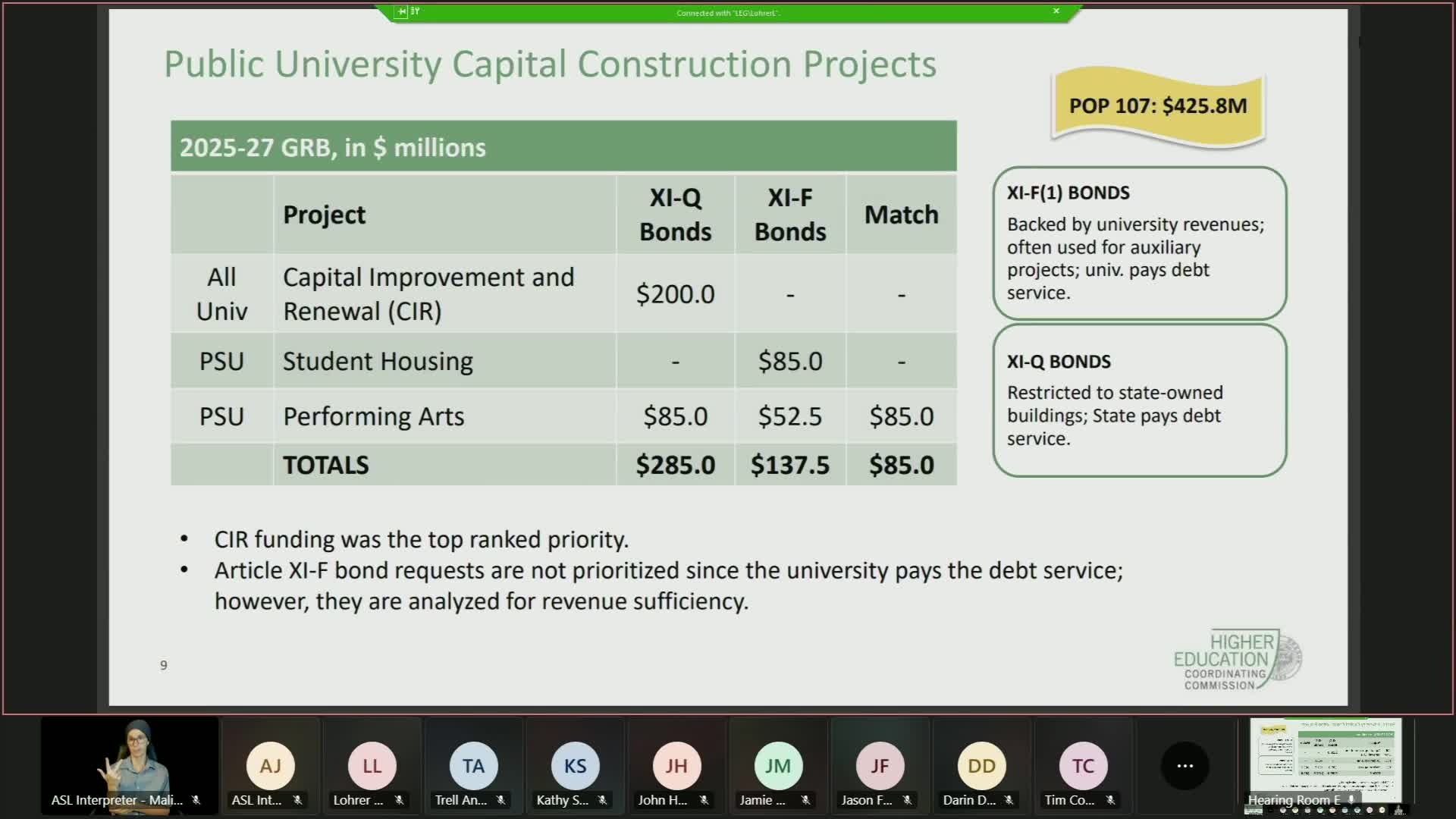Oregon Higher Education Committee proposes $200M for capital improvement projects
May 02, 2025 | Capital Construction, Ways and Means, Joint, Committees, Legislative, Oregon
This article was created by AI summarizing key points discussed. AI makes mistakes, so for full details and context, please refer to the video of the full meeting. Please report any errors so we can fix them. Report an error »

In a recent meeting of the Oregon Legislature's Joint Committee on Ways and Means Subcommittee on Capital Construction, a significant funding proposal aimed at enhancing public university facilities was discussed. The committee reviewed a request for $200 million in Article 11 Q bonds, designated for capital improvement and renewal projects across Oregon's universities. This funding is intended to address essential upgrades such as HVAC systems, roofs, and ADA accessibility, focusing on smaller-scale projects rather than new constructions.
Historically, the funding for these projects has not exceeded $100 million, making this proposed increase noteworthy. The funds will be allocated based on a formula that considers the specific needs of each institution, allowing universities to prioritize their most pressing maintenance issues. However, it was noted that newer campuses, such as OSU Cascades, may not benefit significantly from this funding due to their recent construction.
In addition to the capital improvement funds, the committee also discussed $85 million in Article 11 F bond funding for a student housing project at Portland State University (PSU), which will be repaid by the university itself. Another project highlighted was the PSU Center for the Performing Arts, which, while included in the governor's recommended budget, was not ranked by the Higher Education Coordinating Commission (HECC) due to its different focus compared to traditional higher education projects.
The discussions underscored the importance of maintaining and upgrading existing facilities to ensure they meet current standards and serve the needs of students effectively. The proposed funding aims to provide flexibility for universities to address their unique challenges without legislative constraints on specific projects.
As the committee moves forward, the outcomes of these discussions will play a crucial role in shaping the future of Oregon's public university infrastructure, directly impacting students and the broader community. The next steps will involve further evaluation of the proposed projects and potential adjustments based on legislative priorities and community needs.
Historically, the funding for these projects has not exceeded $100 million, making this proposed increase noteworthy. The funds will be allocated based on a formula that considers the specific needs of each institution, allowing universities to prioritize their most pressing maintenance issues. However, it was noted that newer campuses, such as OSU Cascades, may not benefit significantly from this funding due to their recent construction.
In addition to the capital improvement funds, the committee also discussed $85 million in Article 11 F bond funding for a student housing project at Portland State University (PSU), which will be repaid by the university itself. Another project highlighted was the PSU Center for the Performing Arts, which, while included in the governor's recommended budget, was not ranked by the Higher Education Coordinating Commission (HECC) due to its different focus compared to traditional higher education projects.
The discussions underscored the importance of maintaining and upgrading existing facilities to ensure they meet current standards and serve the needs of students effectively. The proposed funding aims to provide flexibility for universities to address their unique challenges without legislative constraints on specific projects.
As the committee moves forward, the outcomes of these discussions will play a crucial role in shaping the future of Oregon's public university infrastructure, directly impacting students and the broader community. The next steps will involve further evaluation of the proposed projects and potential adjustments based on legislative priorities and community needs.
View full meeting
This article is based on a recent meeting—watch the full video and explore the complete transcript for deeper insights into the discussion.
View full meeting
